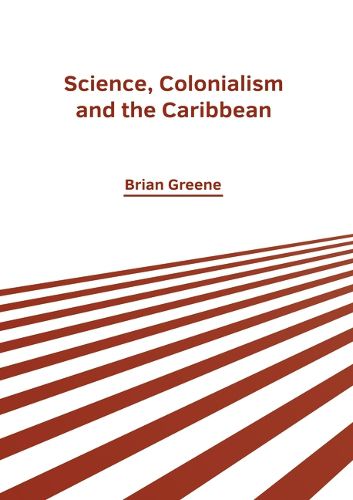Readings Newsletter
Become a Readings Member to make your shopping experience even easier.
Sign in or sign up for free!
You’re not far away from qualifying for FREE standard shipping within Australia
You’ve qualified for FREE standard shipping within Australia
The cart is loading…






Colonialism and science had a profound impact on the Caribbean. European colonial powers brought scientific knowledge that influenced agriculture, medicine and natural resources management. They introduced new crops like sugarcane and coffee, transforming the Caribbean into a major producer for global markets. Scientific research on tropical diseases aimed to improve health. The establishment of plantations reshaped the landscape and economy. Scientific exploration also contributed to understanding the region's biodiversity and ecosystems. Today, efforts are underway to integrate indigenous knowledge with modern scientific practices, promoting sustainable development and cultural preservation. The Caribbean's history reflects a blend of indigenous, African and European influences, evident in its languages, music, cuisine and traditions. The book aims to shed light on some of the unexplored aspects of colonialism and science in the Caribbean. Different approaches, evaluations and methodologies and advanced studies on colonialism influenced the Caribbean have been included in this book. Those in search of information to further their knowledge will be greatly assisted by this book.
$9.00 standard shipping within Australia
FREE standard shipping within Australia for orders over $100.00
Express & International shipping calculated at checkout
Colonialism and science had a profound impact on the Caribbean. European colonial powers brought scientific knowledge that influenced agriculture, medicine and natural resources management. They introduced new crops like sugarcane and coffee, transforming the Caribbean into a major producer for global markets. Scientific research on tropical diseases aimed to improve health. The establishment of plantations reshaped the landscape and economy. Scientific exploration also contributed to understanding the region's biodiversity and ecosystems. Today, efforts are underway to integrate indigenous knowledge with modern scientific practices, promoting sustainable development and cultural preservation. The Caribbean's history reflects a blend of indigenous, African and European influences, evident in its languages, music, cuisine and traditions. The book aims to shed light on some of the unexplored aspects of colonialism and science in the Caribbean. Different approaches, evaluations and methodologies and advanced studies on colonialism influenced the Caribbean have been included in this book. Those in search of information to further their knowledge will be greatly assisted by this book.